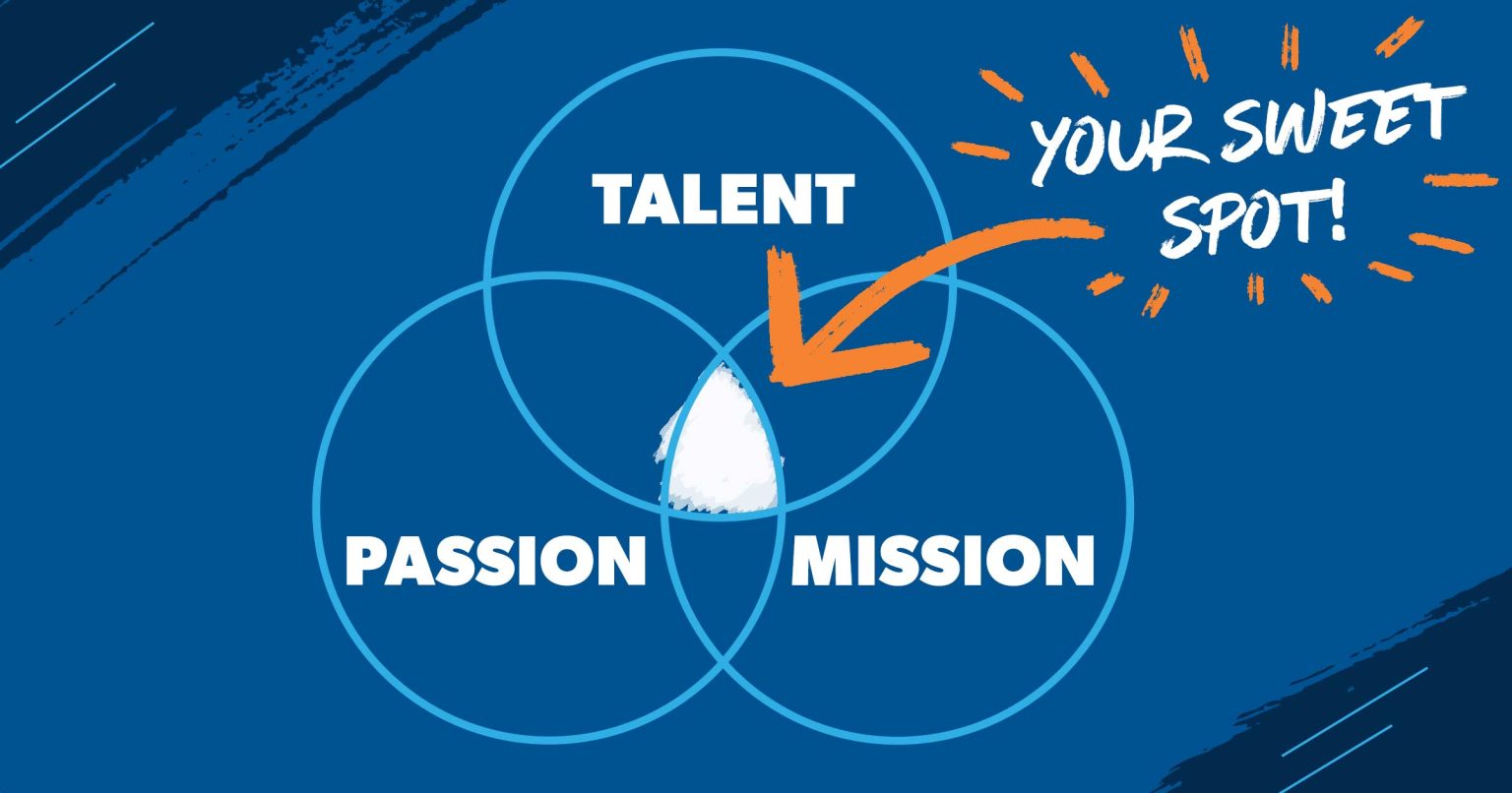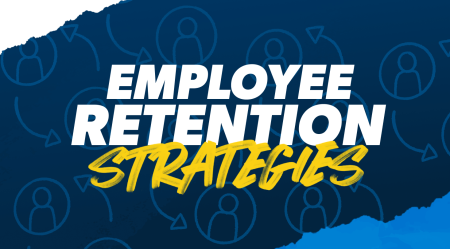Choosing a career—and knowing for sure that it’s the right one for you—might seem like a huge, scary task. This is your life’s work we’re talking about, right? How do you even begin to choose something that you’ll be committing so much time and effort to?
For a large portion of the workforce, that choice is enough to put them in a state of analysis paralysis, and I’ve certainly been there—but that’s the last place we want to be. Somebody out there needs the talents and gifts that you have to offer, and when you feel stuck and scared, you can’t contribute in the way you were created to. The good news is, when you follow a few simple steps, choosing a career is a lot easier than it might seem.
So, whether you’re fresh out of school and just starting to think seriously about your career path or you’re a seasoned professional looking to make a big career shift, here are some tips that will get you started.
1. List your skills.
No matter who you are, I know there are plenty of things you’re good at. You probably have a pretty good idea of what those talents are already, but go ahead and make a list of every single one that comes to mind. What subjects did you ace in school? What talents do people compliment you on? What comes so easily to you it’s almost like breathing? These are all clues that tell you what your strengths are. Don’t leave out any skill, even if you don’t think it qualifies as a career skill. You never know how your unique set of strengths could transfer to a job.
2. Identify your passions.
Passion isn’t just a pipe dream. It’s a very real and necessary part of finding a career that’s meaningful to you. No one wants to do work that makes them feel like a zombie! Finding your passion doesn’t mean the work will always be easy, but it does mean you’ll be fulfilled while doing it. Make a list of the activities that bring you to life, energize you, inspire you, and make you lose track of time. Again, don’t veto anything right now, even if you don’t really think it could be a good career option. Just write it down anyway.
3. Clarify the results you care about.
This is also known as your mission. Who are the people you most want to help? What problems do you want to solve? What causes inspire or concern you? How have you been able to help people in ways that were meaningful to you? These are important questions to ask yourself, because without having a deeper purpose or why behind your work, it will be hard to stay with it for the long haul. Take some time to reflect and answer these questions honestly.
Then it’s time to find the connections and crossovers between all three areas. I always say that when you use what you do best (your talent) to do what you love (your passion) and produce the results that matter most to (your mission), you’re in your career sweet spot.
My new Get Clear Career Assessment can help with this process and generate a customized purpose statement that will give you clarity in your career direction, plus show you multiple career options that could work well for you!
Find Confidence and Clarity in Your Career
Discover where your talent, passion and mission intersect to get clarity on the perfect role for you!
Get the Career Clarity Guide
4. Find several career paths to explore.
The career assessment will generate some ideas for you based on your career sweet spot, but you can also brainstorm on your own to find the options you’re interested in exploring further. Keep asking yourself: How and where can I use what I do best, to perform the work I love most, to produce the results that matter to me?
You deserve to win at work. Our new book and assessment will show you how.
The answer to that question could be found in multiple jobs in multiple career paths. Possibilities are a good thing here, so focus on identifying several career paths that you believe fit your purpose statement. Try to get specific on naming those options.
Now that you have a smaller list of specific career options, it’s time to research each of your best matches in greater detail. This is where you’ll get as much information as possible about what each of these options is really like. There are two super effective ways to do this:
Get the facts on salary and job availability.
Use job search sites like Glassdoor to find out the income you could make by going into a certain career and how many of those jobs are actually out there. While you’re at it, you should also think about how much money you need to make in order to live comfortably, provide everything your family needs, and hit your financial goals. Does the career you’re looking at generate enough income, on average, to support those goals? (Contrary to popular belief, it is possible to make an impact and an income by doing something you love!)
Talk to people in that career.
One of the best ways to see if you’d like a certain career is by talking to people who are currently in that career. This is classic Proximity Principle: To get your dream job, you need to be around the people who are doing your kind of work, in the places where that work is being done. Not only will connecting with people help you figure out if you’ll like a career field without having to spend the time and effort to figure that out on your own, but it may also help you get a job referral if you do decide to pursue that career.
Now, connecting doesn’t mean you have to go to some schmoozy networking event. When you network the right way, you can reach out to friends and acquaintances who have some connection with that industry and take them to lunch or coffee to talk about it. And if you don’t know anyone in your desired career field, ask your friends if they know someone who does work in that industry and see if they can introduce you. Most people are surprised by how big their web of connections really is and how many connections they can make just by talking to the people they meet at church, in their neighborhood, through mutual friends, or sitting on the sidelines at their kid’s soccer game.
5. Determine if you’re qualified.
At this point, your list of career options should be narrowed down even more based on everything you’ve found out through researching and talking to people. In fact, there’s probably one career option that’s standing out now as a dream job for you—that’s what we want! Now that you have clarity on the career you want to pursue further, the next step is to make a plan to get there by answering four basic questions.
The Education Question: What do I need to learn?
This learning could come in the form of traditional education (like a college degree), some kind of training or certification (a shorter-term program), or what I like to call workification (getting hands-on knowledge without a degree). This could mean job shadowing, auditing college courses, doing a short internship at a company you’re interested in, or anything else that helps you get some education and training with low commitment.
The Experience Question: What do I need to do?
In other words, what level of experience do you need in order to get hired in your chosen career field? A lot of folks get stuck in the idea that you need to have a certain amount of work experience in a given field to get hired, but there are plenty of ways to get experience in a nontraditional way. This could look like doing some freelance gigs, volunteering at an organization, or taking on an entry-level side job. You might not get paid much (or at all), but you’ll get more clarity on whether or not this career is a good fit for you—plus you’ll make more connections and get something valuable to put on your resumé.
The Economic Question: What will it cost?
I want to spend some time on this one because cost is something that a lot of people overlook when thinking about career choices. Our career is ultimately supposed to bring in money for us, but in order to get to where we really want to be, we may have to spend some money along the way—whether that’s for more schooling or relocating to another state for a great job. I’m a firm believer in doing everything debt-free, including education (yes, you really can get an education without going into debt), so it’s important to get an estimate of how much you’d need to save.
And think about the other costs that would come with your potential career field. Would this change make it harder for you and your spouse to pay off debt? Would you need to press pause on buying a house for a while? Count the cost first—and if you’re married, make sure you talk all of this over with your spouse before making any moves.
The Expectation Question: How long will it take?
A really good indicator of how passionate you are about a career option is whether or not you’re willing to be patient and put in the work it takes to get there. You might be tempted to take some shortcuts along the way, but doing work you love can be more like climbing Mount Everest. And there are no shortcuts when you’re climbing Mount Everest! Make sure you have a realistic expectation of how long it could take to break into this career so you know what you’re getting yourself into and you’re not caught up in the glamor or excitement of the idea of that career.
6. Don’t get stuck.
There’s only so much career shopping you can do before you have to just go for it! Polish that resumé, get that internship, fill out those applications, or do whatever else it takes to get started. I know the voices of fear, doubt and pride (who I like to call the enemies of progress) might be loud right now, but you won’t get anywhere if you don’t start somewhere. Remember, you don’t have to stay locked in the same career for the rest of your life. You might get involved in one career and then change your mind again, and that’s okay—as long as you’re doing work you love, your career will be a success.
Need some more help finding clarity and confidence in your career direction? My new book, From Paycheck to Purpose, will show you how to stop the exhausting daily grind and start doing work that’s deeply meaningful to you—and it’s available for preorder now!
Read the full article here












